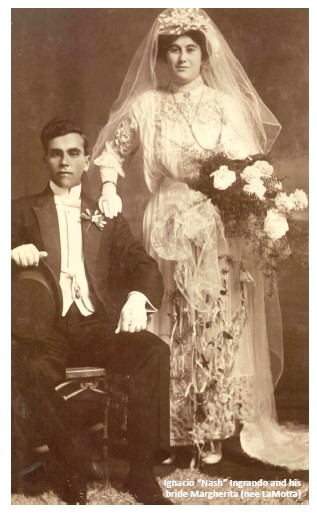 This month marks a milestone—the 120th anniversary
of The Great Storm of 1900. Which also means that
120 years-worth of history has been written about it,
and almost all of it is about Galveston. But why would it not
be?
This month marks a milestone—the 120th anniversary
of The Great Storm of 1900. Which also means that
120 years-worth of history has been written about it,
and almost all of it is about Galveston. But why would it not
be?
Roughly one in six residents were killed, many of whom
survived the storm itself but expired unable to free
themselves from the debris. One in four were left homeless,
1,900 acres of developed land were scraped clean by an
enraged Gulf, and the conservatively estimated $17 million
in damage equates to 25 times that amount today.
Nevertheless, a storm large enough to do that much
damage to one city was certainly large enough to impact
more than one. Nearby cities such as Alvin, Angleton,
Brazoria, El Campo, Pearland, Richmond, Alta Loma, and
Chenango suffered complete or near-complete destruction.
Death tolls and property losses were numerically lower
due to sparser populations and only rural development,
but the discrepancies lessen considerably when measured
proportionately to Galveston as a thriving urban metropolis
of the time. Houston, only marginally developed at this
point, still assumed nearly $250,000 in damages fifty miles
away from the center of the storm.
Numbers and statistics, however, only calculate the
quantifiable. The human experience of living through such
a monolith storm cannot be measured nor compared. The
immense terror of rising water, engulfing tides, hammering
rain, and riotous winds was universal.
If Shakespeare had lived on the Texas coast, his famous
line might have read, “hell hath no fury like Mother Nature.”
So potent, so all-consuming was this experience that a
frightened Sicilian immigrant in Houston made a promise
that has been kept by his family for well over a century.
Ignacio “Nash” Ingrando immigrated to the U.S. through
New Orleans in 1888 at the age of 22. He traveled with his
wife Margherita LaMotta Ingrando, his infant daughter,
and two-year-old son. Eventually, they made their way to
Houston with several other extended family members.
Nash opened a grocery store on the corner of McKinney
and Sampson, and he and his family lived for a time on the
second floor. By the time the 1900 storm struck the Texas
coast, Nash and Margherita’s family had grown by two more
daughters, and they had moved to a home at Jackson and
Chenevert Streets.
Inside this house, Ignacio, Margherita, and their four
children Rosie, Frank, Jenny, and Annie clung to each other
on that fateful September Saturday. Outside, the howl of
100 mph winds was punctuated with the sounds of breaking
glass, broken tree branches scraping across their windows,
electrical poles toppling into their street, and shingles
ripping from the rooftops.
Desperate and fearful for his family, Ignacio prayed, “Oh
Blessed Mother, if you save my family, I’ll have a mass said
in your honor every year.”
The Ingrando family escaped unscathed, as did all
Houstonians save two, but the favorable odds did not
diminish Ignacio’s appreciation. Following the storm, his
grocery business thrived, and he continued to hold the
mass every year until his death in 1929. His son Frank then
took it over, then it was passed on to the grandchildren,
and then the great-grandchildren. Every year for 119 years,
the Ingrando family has kept Ignacio’s sacred vow, and the
tradition continues in 2020.
Myrna Sanders, the great-granddaughter of Rosie
Ingrando Bilao, says that time has not diminished the
family’s commitment to their patriarch’s promise. “We are
not always able to have it on the exact day, September
8, sometimes it is the Sunday before or after, and not
everyone can come every year,” she says.
“But for the most part, everyone tries to keep that date
open. It is very special to all of us. In 2000 for the 100th
anniversary, all the descendants came.”
This year, an in-person event is not possible because of
the pandemic, but the family was insistent that it continue
in any way possible. “I spoke to my cousin who organizes it
now, and she said, ‘there is no way I am going to not do it,”
Myrna shares.
And so, the service will be held virtually to avoid a large
gathering, but the virtual format will also allow family
members to attend who might not have been able to travel
regardless.
The mass includes scripture readings, a sermon, and
the singing of hymns. In the earlier years and in honor of
Galveston, the family would sing “Queen of the Waves.”
Legend holds that this hymn was sung by the nuns of St.
Mary’s Orphanage to their wards as they succumbed to the
storm. The lyrics hauntingly echo Ignacio’s prayer, revealing
that the outpouring of tragedy is not bound by time or
location.
“Help, then sweet Queen, in our exceeding danger, by thy
seven griefs, in pity Lady save; think of the babe that slept
within the manger and help us now, dear Lady of the Wave.”